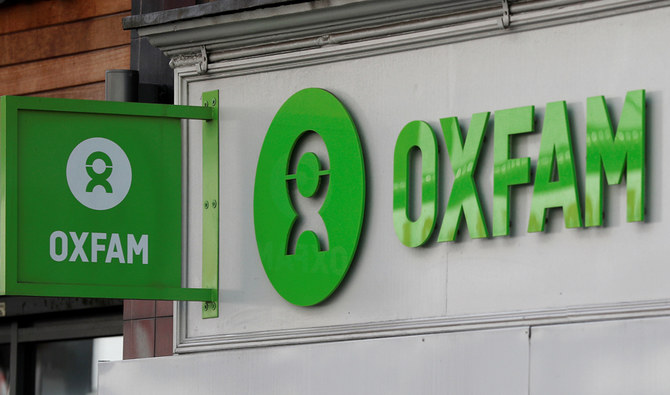LONDON: The economic fallout from the coronavirus pandemic could have devastating effects in the Middle East and North Africa (MENA) unless action is taken, a major charity has said in a new report.
Oxfam, a confederation of 19 independent charitable organizations and one of the world’s biggest non-profit groups, said the damage caused by COVID-19 could push half a billion people into poverty worldwide.
An Oxfam worker focusing on the MENA region told Arab News: “An extra 44 million people could be pushed into poverty in the region.”
The charity has called on world leaders to form an economic relief package ahead of meetings of the International Monetary Fund and finance ministers of the G20, which is currently under Saudi Arabia’s presidency, to prevent the catastrophe.
Oxfam’s report, titled “Dignity Not Destitution,” said 6-8 percent of the world’s population could be forced into poverty as governments shut down their economies to slow the spread of the virus.
King’s College London and the Australian National University conducted Oxfam’s research, which found that a 20 percent drop in income from a recession due to COVID-19 would leave 548 million people living on less than $5.50 per day, one of the World Bank’s definitions of poverty.
“The economic crisis that is rapidly unfolding is deeper than the 2008 global financial crisis,” Oxfam said. “The estimates show that, regardless of the scenario, global poverty could increase for the first time since 1990.”
The report added that some countries could face their poverty rates set back to levels not seen for three decades.
Nabil Abdo, a senior policy advisor at Oxfam, told Arab News that the MENA region faces specific challenges with the economic downturn due to “prevailing socioeconomic and political structures that were in place long before the outbreak.”
He added: “It’s the most unequal region in the world. The top 10 percent hold 64 percent of the share of income, while the bottom 50 percent hold just 10 percent of the share of income.”
He said the region is also home to the largest refugee populations in the world. “While home to just 5 percent of the world’s population, roughly 34 percent of the world’s refugees and displaced people are found here: Over 5 million Syrian refugees and 13 million people displaced within their countries,” Abdo added.
Oxfam’s report comes after Pakistan’s Prime Minister Imran Khan said: “If we shut down the cities ... we will save (people) from corona at one end, but they will die from hunger.”
The charity’s report called for a variety of policies to alleviate suffering caused by economic shutdowns related to COVID-19, including increasing aid from richer countries while also suspending debts in developing countries for a year.
SPEEDREAD
The charity has called on world leaders to form an economic relief package ahead of meetings of the International Monetary Fund and finance ministers of the G20 to prevent the catastrophe.
Many wealthy nations such as France, the UK and the US have been able to launch high-cost stimulus packages to keep businesses afloat and keep roofs over peoples’ heads.
But Oxfam fears that the weaker financial systems of developing countries will struggle to meet the demands posed by the shutdowns.
In Lebanon, which was enduring enormous political crises and a national revolution before the COVID-19 outbreak, ministers have struggled to produce a plan to handle euro bond payments due since March as the country’s debt skyrockets.
Lebanon cannot afford a lockdown. This dire situation is replicated in other territories, with Palestine under significant pressure to prevent economic collapse.
“Even during ‘normal’ times, which include three active wars, public hospitals (in the region) don’t have necessary supplies and equipment. They’re unable to cater to the needs of most people, even before taking into account these challenges,” said Abdo.
“At the same time, the informal economy is expanding and 63 percent of all employment is informal. This means many people won’t get the health care they need in terms of testing or treatment during this new pandemic.”
The World Bank has stepped in across the MENA region, supporting the implementation of Djibouti’s Preparedness Plan with $5 million in International Development Association (IDA) credit.
It has also awarded the internationally recognized government in Yemen a $26.9 million IDA grant to be implemented in partnership with the World Health Organization.
But Oxfam has said this is not enough, and has called for a vast rise in aid spending from wealthy nations.
“Of the $2.2 trillion stimulus package announced by the US government in late March, only 0.05 percent, or $1.1bn, will help address the crisis in poor countries,” the report said.
This is “shocking and shortsighted,” it added. “Unless rich countries are ready to quarantine themselves for ever, this crisis will not end without international solidarity.”



























